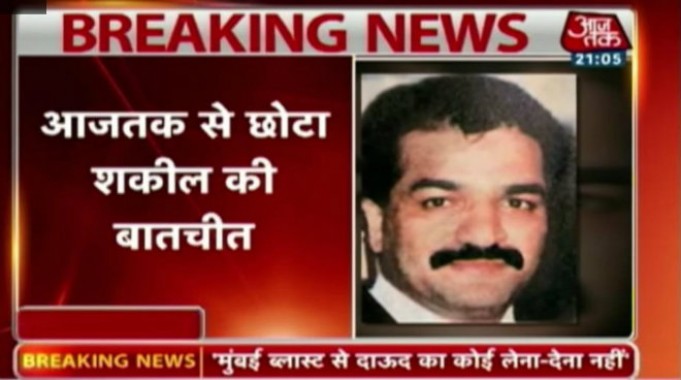Arbitrary censure
Dawood Ibrahim is a wanted man in this country. His brother Chhota Shakeel is telling television channels what he thinks of India’s justice system.
“The world has seen that how justice is done in India. In a single day, four mercy petitions get dismissed. Is this supposed to be law? The members of this (law) department in India do not know what they have done with Yakub. They have hanged an innocent man.”
Later the anchor says,”The Supreme Court has done justice...” and Shakeel adds, “ We don't believe in the court. This is not justice, this is vengeance. Revenge has been taken on this man.”
This particular exchange took place on Aaj Tak on July 31. A week later this channel among others was given a show cause notice by the ministry of Information and Broadcasting, alleging that it had, among others had showed disrespect to the judiciary and the President of India by airing this interview on the day 1993 Mumbai blasts convict Yakub Memon was hanged. The reference was to the programme code of the Cable Television Act which disallows any programming which “contains aspersions against the integrity of the President and Judiciary”.
The notice triggered instant protestations of an attack on free speech. A second channel ABP news had also aired an interview with Chhota Shakeel on the same subject the same day and also earned a similar notice.
So did NDTV for broadcasting a programme Truth vs Hype on August 1 in which Srinivasan Jain spoke to one time Yakub Memon lawyer, Majid Memon. Memon said, Osman Jan Khan who was an approver in the case was pardoned. “ If you show this pardon to any person outside India, UK authorities or US authorities or the best brains in this world as far as criminal law is concerned, they will laugh at you. They will laugh at you. They will laugh and say is this justice? He played a role ten times that of Yakub.” But Memon also followed that up by saying, “I salute the Supreme Court for having at least afforded a last ditch opportunity to him at 3 am.”
There is a Cable Television (Regulation) Act. There is however no regulator. If something offends the government of the day it can respond with an arbitrary notice, the Act arms it with sufficient powers. And the ministry does not have to be even handed. The long night in which Yakub Memon’s mercy plea went back and forth saw the anchors of several channels whipping up emotions, it saw unabashed polarising of opinion as well as hate mongering.
It saw a channel like Times Now articulate satisfaction on the behalf of the nation that justice had been done, and now there was closure. Arnab Goswami’s show was anxious to decide for the President. It was titled, “How can terror get mercy?”
Some of those shows would have attracted the very first programme related provision of the Cable Act: “offends against good taste or decency”. Aaj Tak used clips from the Bollywood film ‘Black Friday’ and its reporters told viewers that the hangman had been doing ‘dry runs’ for three days to do a good job. IBN7 juxtaposed a photo of Memon with a noose dangling near his face. Tej channel carried a graphic of a ‘time machine’ to crudely denote the countdown to the hanging. But the ministry prefered to restrict its censure to comments which reflected poorly on the state.
Without a complaints council for viewers to take their objections to, the channels indulged in a tasteless free for all. The Self Regulatory Authority will have past strictures to cite if you were to ask them how effective they are. The truth is that even if an advisory was issued regarding the coverage of the hanging, it cut no ice with the channels at all.
Free speech has articulate champions who don’t mind freedom erring habitually on the side of excess. And their numbers will grow. Because on the other side is ranged an arbitrary government ( the past one included) which will not put a statutory regulator for TV content and a forum of appeal in place. It suits it to have powers of selective censure.








